Moogerfooger Effects Plugins: Classic Moog pedals for your DAW
The collection of eight Moogerfooger plugins is now available individually. So you can pick and choose from these fabulous recreations of the classic Moog analogue effects pedals.
Update (28th February 2023) The Moogerfooger plugins can now be purchased individually.
Moogerfooger
Original article posted 20th October 2022.
Although the pedals were originally introduced in the late 1990s they always had a distinct vintage vibe about them. Probably because they’d come directly from the original Moog modular synthesizers. In the era of digital technology and the rise of software, the Moogerfooger pedals stood out as a kind of throwback to another age. To many, they were chunky and confusing. Were they for guitarists, or for synths? What’s this CV stuff about? Why are they not digital multi-effects with 100 presets? Moogerfooer, with the weird name and analogue pedigree, was definitely underappreciated by musicians who were pushing everything into their computers. But to those in the know, these pedals were legends.
In all, there were 20 variations of Moogerfooger pedals produced over 20 years from 1998. The most famous are the MF-101 Lowpass Filter, MF-102 Ring Modulator, and the MF-103 12-Stage Phaser. For this bundle of Moogerfooger Effects Plugins, Moog has taken those three and added the MF-104 Delay, MF-105 MuRF, MF-107 FreqBox, and MF-108 Clusterflux.
Moogerfooger Effects Plugins
The bundle includes seven classic Moogerfooger pedals which have been re-invented as plugins using Moog’s DSP artistry. And while this is not a full review I can tell you that they are superb. From the perfectly captured front panel to the tone and modulation, they are simply sublime. Each one is a universe to explore, a musical effect for whatever you want to throw at it. They are organic, simple, expressive, and experimental. Plug in a synth, plug in a guitar, slap it on a vocal, process some drums and your mix is going to love you.
Here’s a quick summary of each pedal in the series.

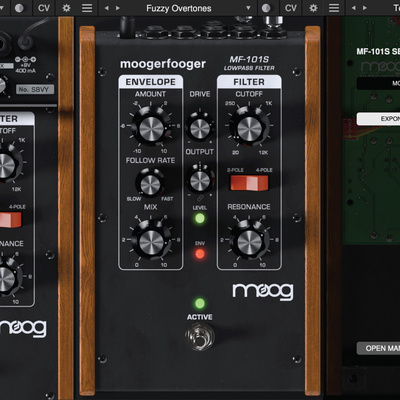
2-pole or 4-pole lowpass filter with an envelope follower that lets you play the filter with your instrument. Fabulous for auto-wah.

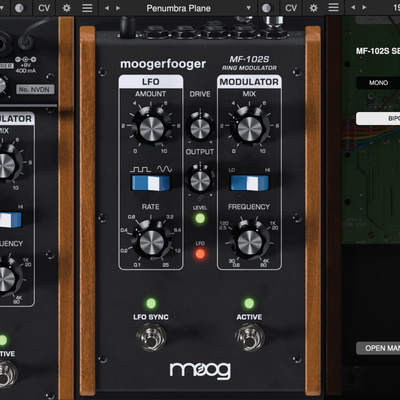
Experimental, tremolo, spacey and retro-futuristic sounds.

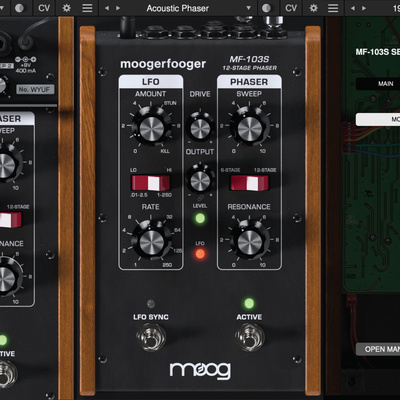
6 or 12-stage phaser with resonance control, Sweep and LFO modulation.

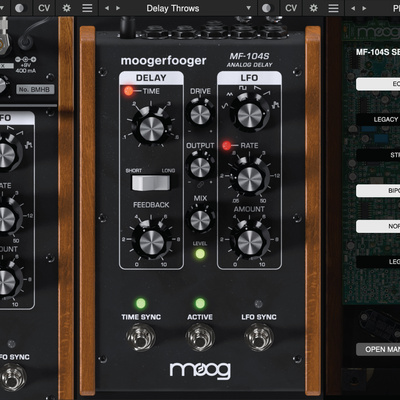
Lush and warm analog delay. The Short/Long switch doubles or halves the delay time with great pitch-shifting effects.

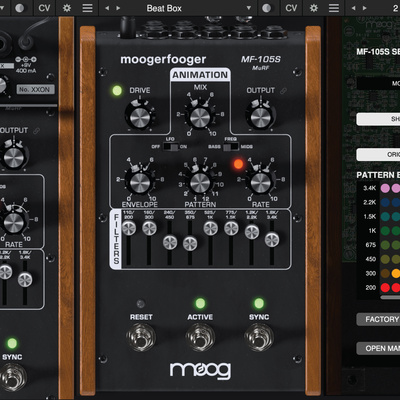
Multiple Resonant Filter Array with an Animation module for synced patterns and lively interactions.

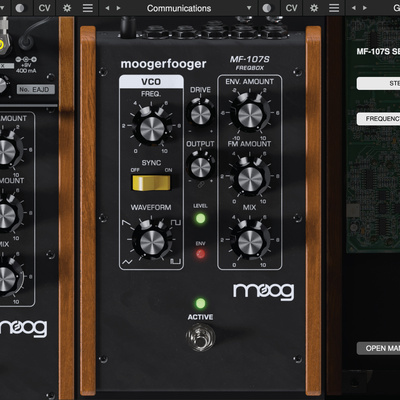
A variable waveshape oscillator with an envelope follower to allow the input to shape the pitch of the VCO.

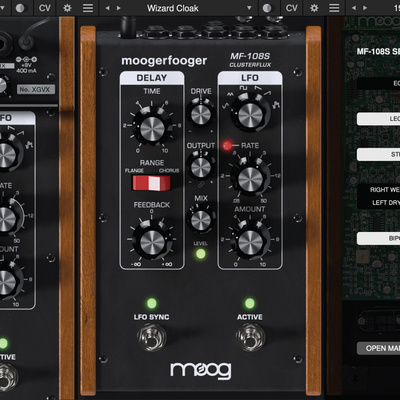
A Bucket Brigade based delay line that offers the thickest Chorus, Flanging, and Vibrato.

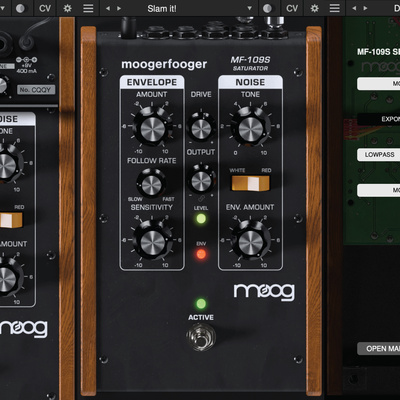
A saturation pedal with envelope follower and a noise generator from the Minimoog Model D.
They all feature a Drive control to introduce the saturation and distortion of the original Moogerfooger input amplifier stage. You can inversely link it to the Output knob so that as you turn up the Drive, the Output comes down, keeping the level consistent.
CV Modulation
One of the coolest features of these plug-ins is their ability to modulate each other. So while they are independent plugins, if you have another one loaded, you can use any pedals modulations as a CV input to any other. So any available envelopes or LFOs turn up in the modulation section at the top of the pedal. This mimics the original pedal’s CV inputs and is completely brilliant.
You’ll also find extra features and possibilities behind the panels. So Moog hasn’t just replicated the hardware; it’s developed and enhanced them for the modern DAW.

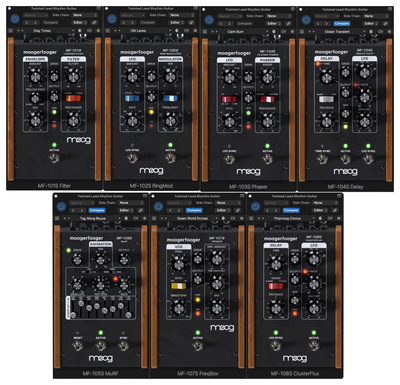
Note: This article contains affiliate links that help us fund our site. Don’t worry: the price for you always stays the same! If you buy something through these links, we will receive a small commission. Thank you for your support!
- Moogerfooger Effects Plugins: Moog Music
- Moogerfooger Effects Plugins: Moog Music
- Moogerfooger Effects Plugins: Moog Music
One response to “Moogerfooger Effects Plugins: Classic Moog pedals for your DAW”
 3,3 / 5,0 |
3,3 / 5,0 | 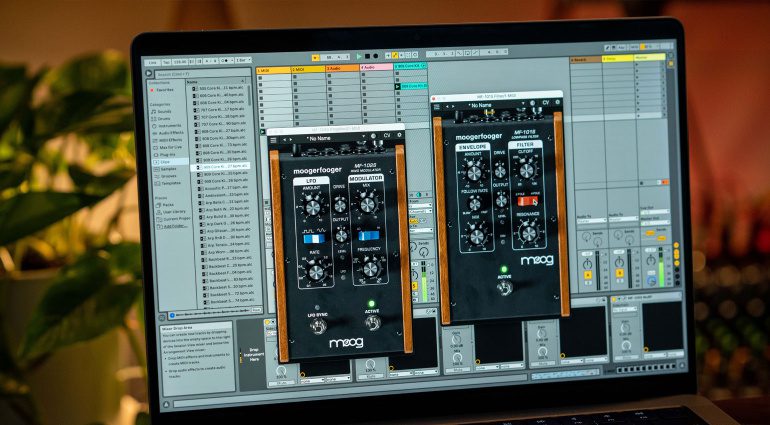

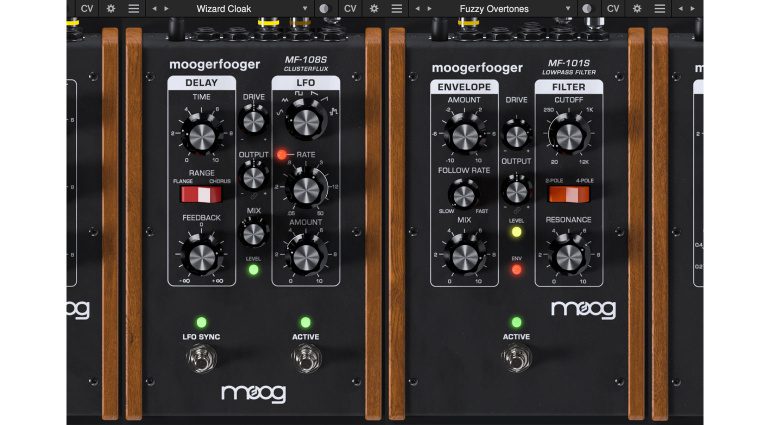
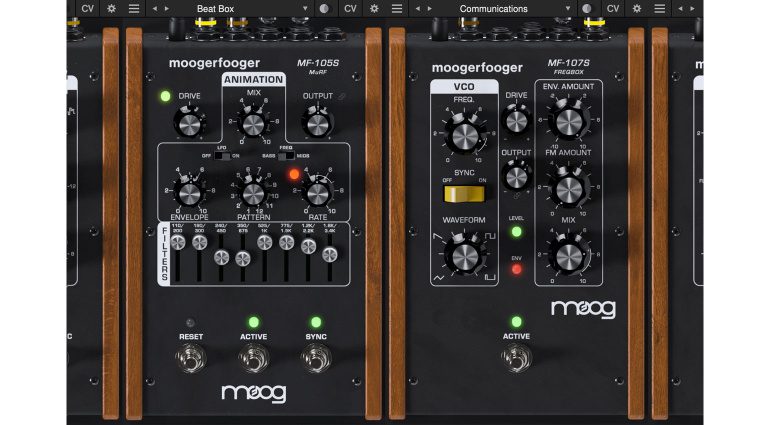
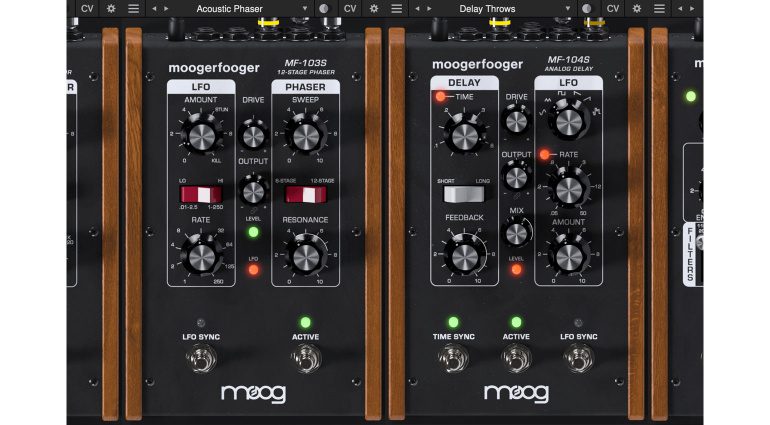
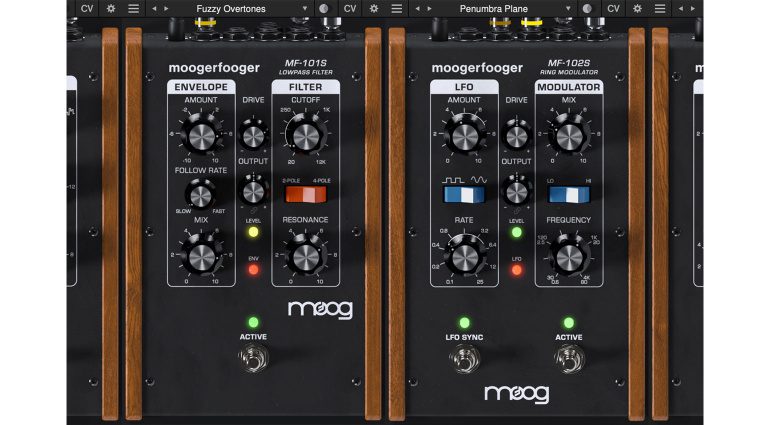
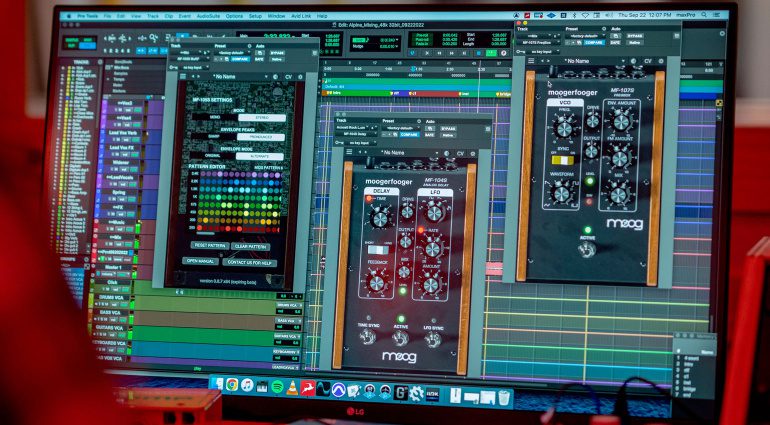
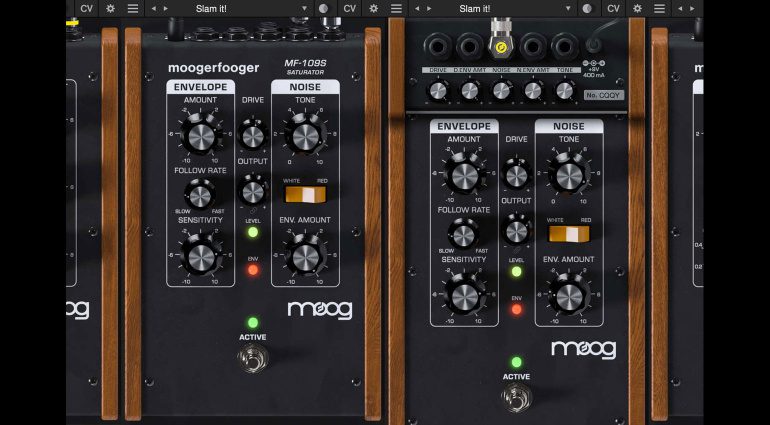









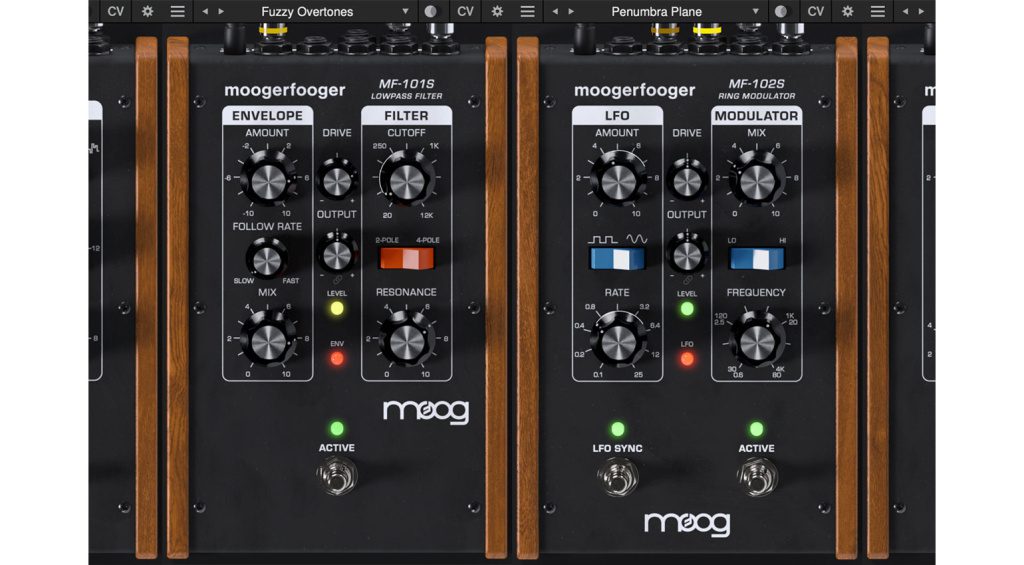

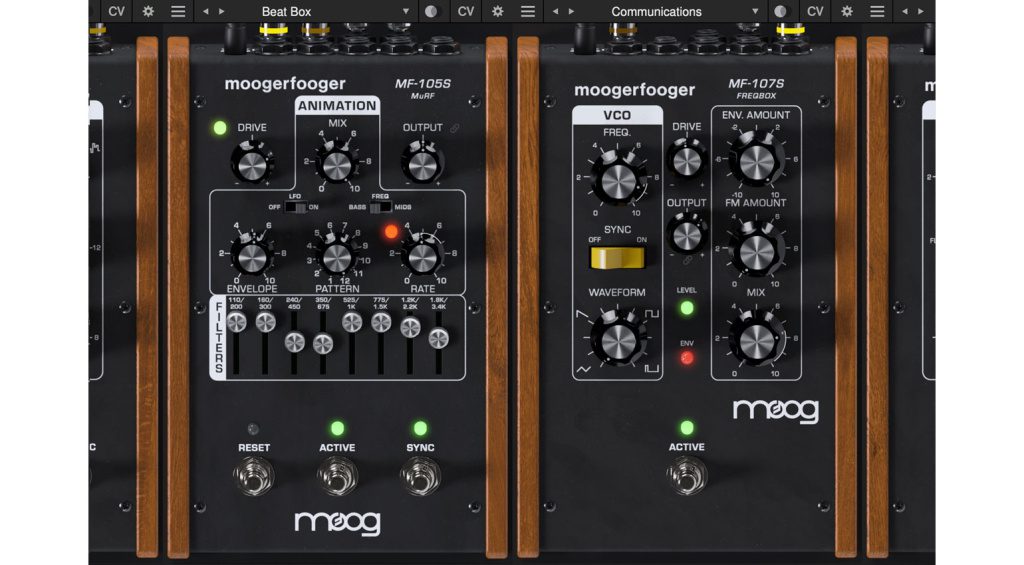
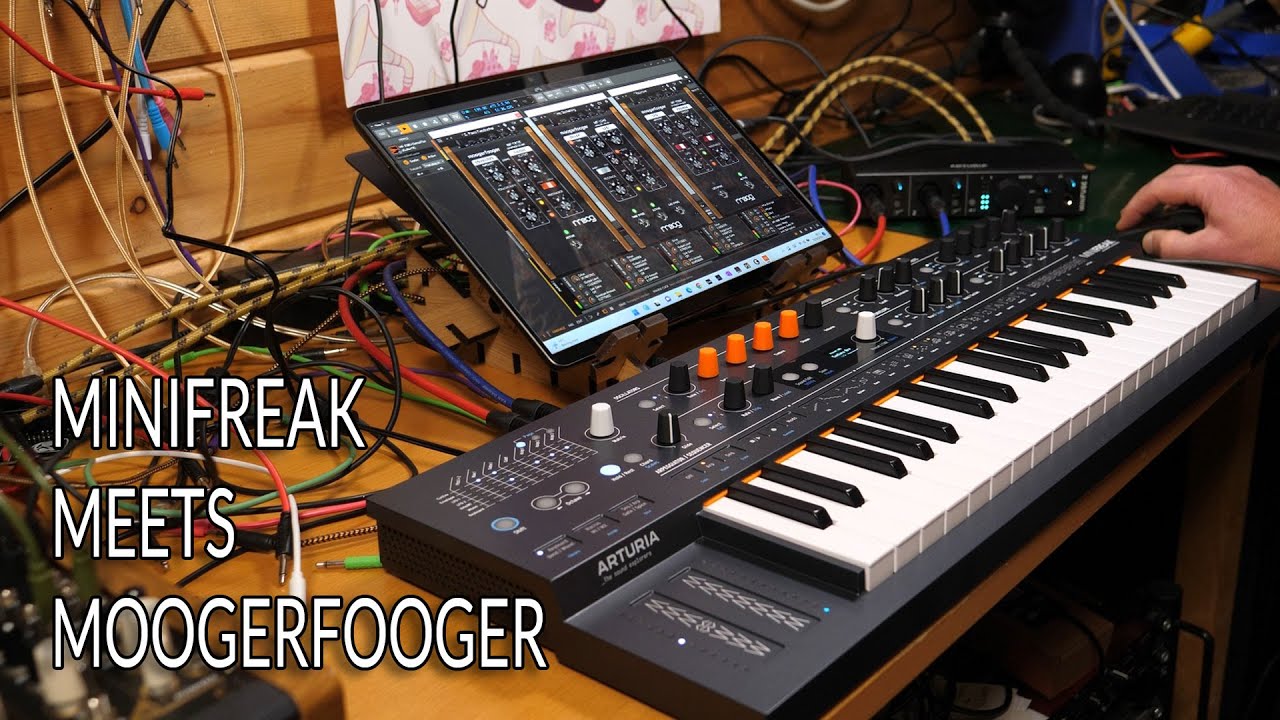

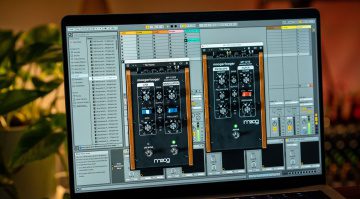

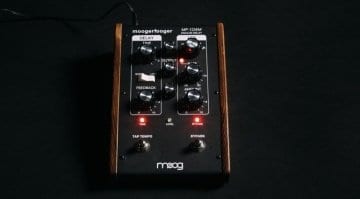
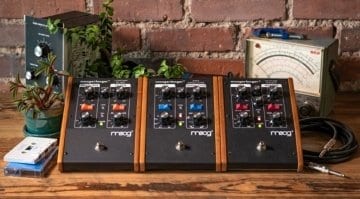

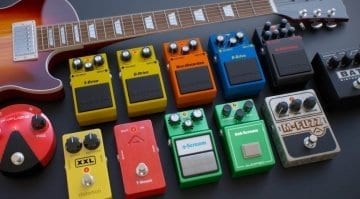

Good to know!